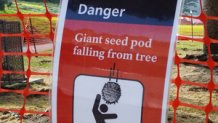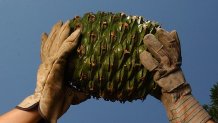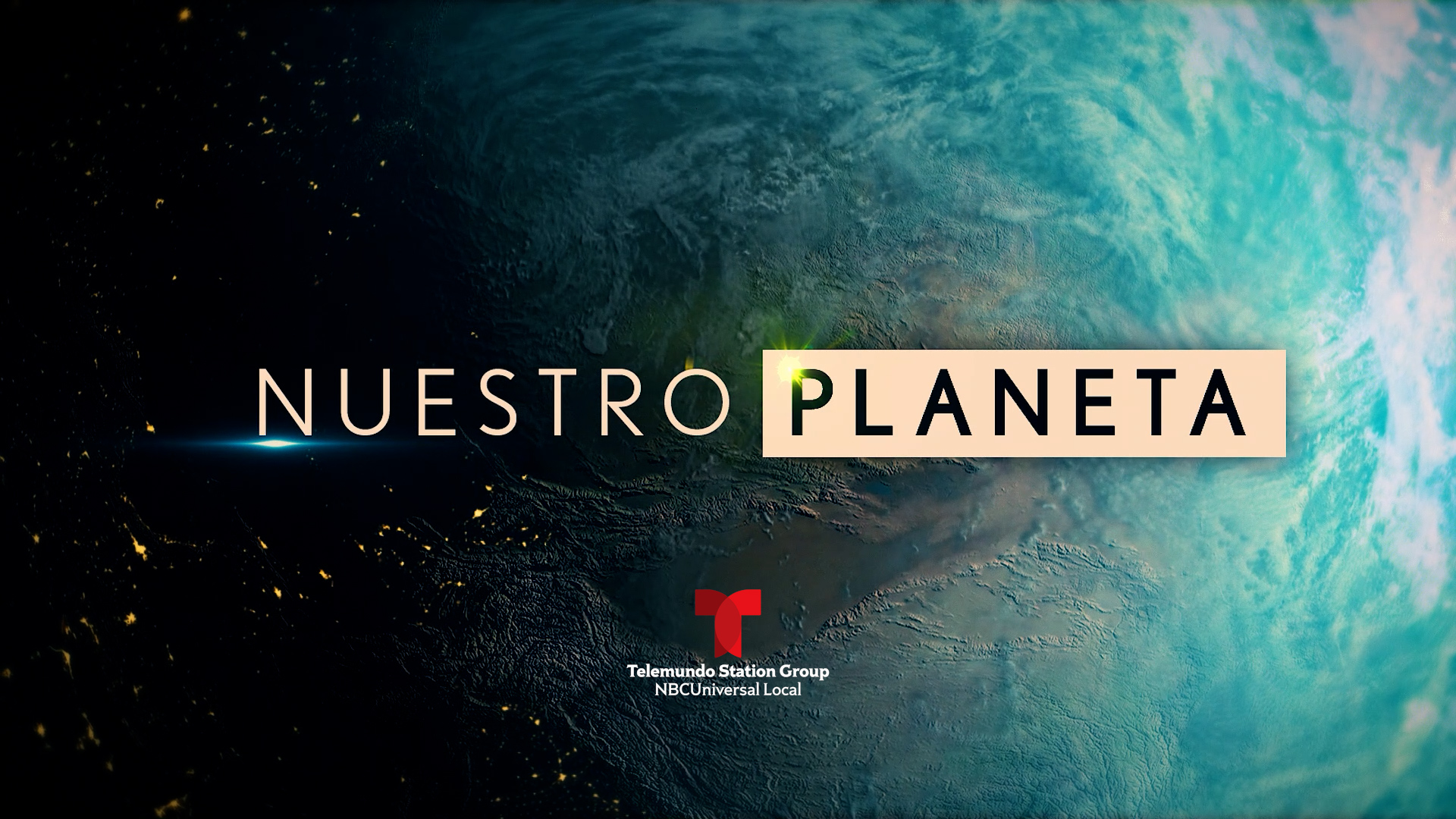Navy veteran Sean Mace was visiting San Francisco during Fleet Week last October and had gotten what he thought was a great view to see the Blue Angels soaring across the sky.
He got to the San Francisco Maritime National Historical Park at the Fort Mason Center early to secure his spot hours before the show. He read a book. And he fell asleep.
He woke up – the next day in a hospital – after a 16-pound pine cone, or seed pod, fell from a tree at the park, crushing his skull and causing him to have permanent brain damage, short-term memory loss and other cognitive issues.
“He still has a tremendous degree of anxiety,” Mace’s San Francisco attorney, Scott Johnson, told NBC Bay Area on Thursday. “He’s in constant fear of getting hit on the head. It’s like a bowling ball falling from the sky and hitting you on the head.”

Johnson filed a lawsuit on Mace's behalf Sept. 4 in U.S. District Court in San Francisco, citing dangerous conditions of public property and negligence on the part of the U.S. Dept. of Interior, the National Park Service and the San Francisco Maritime National Historic Park.
The suit seeks $5 million in damages and alleges the park should have known about the danger, and at least should have posted warning signs, which have since been put up on bright, orange fences around the property.
U.S. & World
Mace was injured Oct. 12, 2014 while visiting the Bay Area from Washington state after being laid off as a heating and air-conditioning worker, according to Johnson and the lawsuit. He was 50 at the time and had served in the Navy for two years in the 1980s.
Johnson said Mace used his time off to see the Blue Angels, the U.S. Navy’s flight demonstration squad, who are in town again this week performing aerobatics in the sky.
According to the lawsuit, Mace went to the park and sat under a grove of coniferous Araucaria bidwillii trees, also known as bunya pines or false monkey puzzle trees. The trees are not indigenous to San Francisco and were planted by park staff several decades ago. Their seed pods can grow 35 centimeters in diameter and exceed 40 pounds in weight.
At some point, a 16-pound seed pod fell on Mace's head.

Mace was rushed to San Francisco General Hospital, where he had an emergency craniotomy, and then a right hemicraniectormy, the lawsuit alleges, resulting in traumatic brain injury and “likely irreversible cognitive deficits.”
Mace is holding the park district responsible because there were no warnings posted about falling seed pods, no safety barricades and no netting, Johnson explained. Only afterward did park staff install safety barricades and signage, according to the lawsuit.
Johnson said appellate courts have found in the past other national parks are not immune to situations during which heavy snow causes tree branches to break or rockslides to fall, and that juries have decided who is at fault.
That’s what he’d like for his client, too. But Johnson did say in all his research, he’d never found a case involving a falling seed pod that had crushed a park visitor’s skull.
“I’ve not found another case that is factually similar,” Johnson said. “This is relatively novel."
Mace has moved back to Washington state and is being cared for by family and friends.
He also filed a formal claim against the entities named in the suit, which, according to Johnson, has “not been rejected, accepted or even acknowledged.”
Lynn Cullivan, spokesman for the San Francisco Maritime National Historical Park, said Thursday he had no comment on the pending litigation. Cullivan directed inquiries to the U.S. attorney's office, which did not immediately return requests for comment.



